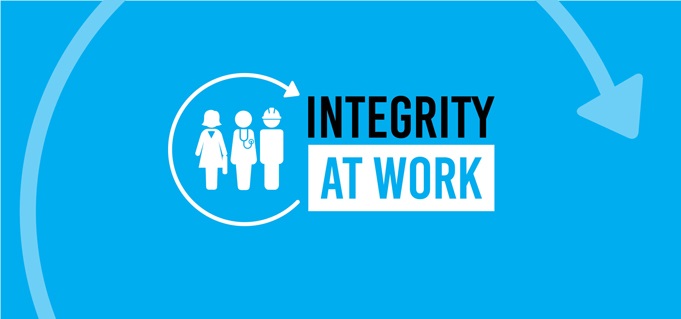Stephanie Casey outlines how we can create a workplace culture that is supportive of whistleblowing. Stephanie is the Integrity at Work Programme Manager with Transparency International Ireland
Whistleblowing is acknowledged as one of the most effective ways to expose institutional wrongdoing.
But despite the pivotal role whistleblowers have played in exposing abuse in our financial sector, healthcare and law enforcement systems, they are routinely penalised by employers and viewed with suspicion by work colleagues.
The Protected Disclosures Act 2014 (PDA) offers hope to whistleblowers – and the public – that behaviour and attitudes towards those who speak up will now change.
The PDA was welcomed as a new standard for whistleblower legislation worldwide. Nevertheless, it alone cannot bring about much-needed institutional and cultural reform.
Without effective implementation of the law, employers will remain unaware of their obligations and workers will be unaware of the protections offered by the PDA.
Likewise, without opportunities to discuss and learn about the importance of speaking up, negative stereotypes and misconceptions about whistleblowers will endure.
Transparency International Ireland (TI Ireland) has found that where workers are unaware of their options and the consequences of speaking up, they regularly fall victim to reprisal, are dismissed from their jobs, and/or are burdened with substantial legal costs.
From the employer’s perspective, the legal and reputational costs of litigation can also be considerable. Employers who are perceived as not treating whistleblowers fairly risk reputational damage and deterring investors and customers.
In addition trade union representatives who advise workers are also sometimes unaware of the steps that whistleblowers should take when speaking up, or of the available legal options.
Similarly, regulators and law enforcement agencies need to be aware of their responsibilities to act on reports made to them and their crucial role in ensuring that whistleblowers are not put at unnecessary risk.
We believe that the effective implementation of the PDA requires employers, trade unions and regulators to fully understand this important law.
However, it is also important that all stakeholders, including the government, are given a clear picture of how the law is working in practice.
It is for these reasons that TI Ireland developed the Integrity at Work (IAW) programme.
The IAW aims to support employers from all sectors to foster a workplace culture in which workers feel safe to speak up about wrongdoing.
Member organisations are asked to sign the Integrity at Work pledge which commits them to implementing a protected disclosures policy and/or investigations procedures that are consistent with both the letter and spirit of the PDA and international whistleblowing standards.
The pledge will also present IAW members with an opportunity to demonstrate their commitment to act on wrongdoing in the workplace and treat those who report concerns with respect.
In addition, it will set a positive example to other organisations and, we hope, will ultimately effect cultural and behavioural change.
TI Ireland will provide a range of tools and support to help employers deliver on their pledge including a self-assessment framework to review existing procedures, training for staff and managers on making and receiving protected disclosures, peer-to-peer learning forums and an annual conference.
Over 35 organisations are supporting the IAW programme this year, including the Irish Congress of Trade Unions and Impact.
An important element of the IAW initiative is informing employers and their staff about the Speak Up Helpline and the Transparency Legal Advice Centre – both of which have been set up to provide free information, referral or specialist legal advice to anyone considering reporting wrongdoing.
Having access to free, specialist and impartial advice will ensure that staff can make informed decisions before and/or after they report a concern.
For many people, choosing to speak up about wrongdoing is a very hard decision to take. However, as better employer support is developed through the IAW programme, we believe that workers’ concerns will be acted upon at the outset, minimising the harm and potential negative consequences for all concerned.
To find out more about Integrity at Work, call Stephanie Casey on (01) 554 3953 or email support@transparency.ie
Originally posted to ICTU blog

